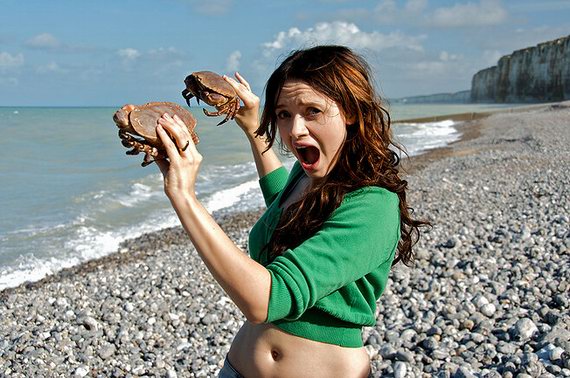Criterion Prediction #28: Madchen in Uniform, by Alexander Miller
Title: Mädchen in Uniform/Girls in Uniform
Year: 1931
Director: Leonitine Sagan
Cast: Hertha Thiele, Dorothea Wieck, Emilia Unda, Erika Biebrach, Hedwig Schlichter, Ellen Schwanneke, Lene Bertolt
Synopsis: With the passing of her mother and her father’s inability to care for her on account of his military service, a fourteen-year-old Manuela von Meinhardis is sent to an all-girls private school for daughters of Prussian soldiers. Struggling with feelings of loss and abandonment (as well as the inherent burden of adolescence), Manuela (Thiele) finds herself at odds with her intimidating surroundings once she is introduced to living in an institution. The boarding school is led by domineering headmistress Fräulein von Nordeck zur Nidden. While her intimidating presence looms over the girls, they are collectively fascinated with the younger, more compassionate (and attractive) Fräulein von Bernburg (Wieck), with whom Manuela exhibits an immediate attraction. Manuela’s feelings towards Fräulein von Bernburg become the subject of controversy resulting in scandal.
Critique: This is a movie that is something of an enigma. The frank realization of its material and the purposeful and rewarding direction from a pioneering stalwart, paired with political connotation and historical context, should put Leonitine Sagan’s Mädchen in Uniform in the upper echelon of classic European cinema, yet its Wikipedia entry describes it as a “cult film.” Soap box admiration aside, Sagan’s film is a revelation, seeing as it’s one of the few to survive from (and through) Weimar Germany’s gay rights movement. There’s more to the story than celebrating a film because it was early in doing something important. Mädchen in Uniform is a strong feature made with integrity and affection by an all-female cast and crew, if you discount the producer. The economic precision of Sagan’s direction is balanced with an unembellished style of storytelling. German expressionism is visible but not a dominant presence. The story functions as the driving force of this film. Manuela is brought to life by a spirited and emotionally viable performance by Hertha Thiele. Despite being the same age (23) as her love interest, she simultaneously maneuvers a youthful naiveté and a charming air of defiance. In an era when film was moving from the exaggerated emoting consistent with silent movies, Mädchen in Uniform is free of overacting, technical shortcomings, clunky sound editing and choppy pacing.
Nuance and maturity dictate the non-sensationalized depiction of its story. Manuela’s emotional response to her teacher is simply the focus of her sexuality. She’s precocious and smart; her feelings for Fräulein von Bernburg stem from the simple fact that she’s gay.
Mädchen in Uniform’s unadorned exploration of sexuality is further bolstered by its bold anti-authoritarianism and subversion of wilting customs and mores. The staunch aristocratic Prussian values embodied by the older teachers are brilliantly undercut by an abiding feminist identity and rejection of fascism – when asked to curtsy Manuela simply extends her arm for a handshake. The tyrannical headmistress supports the restricted diets bordering on starvation. In an attempt to defend her rationing, she presents hunger as the product of Prussian values, declaring that these are the “children of soldiers and, God willing, the mothers of soldiers too.” Germany was still nursing the wounds of economic instability after the First World War while fascism was not too far ahead of them. The societal climate permeating around this film is both compelling and terrifying with the benefit of modern hindsight. The strength of the anti-authoritarian side of the movie doesn’t overshadow the story but simply accentuates the overall power of the film,
Why it Belongs in the Collection: Sometimes these selections should be phrased as “why it can be in the collection” because when the film began (much to my delight), I saw that Mädchen in Uniform was a Janus Films Production. Now does that mean that every Janus title qualifies for the Criterion Treatment? Not necessarily but if there were an exception to be made this movie would be it. Having only seen the VHS version, it’s obligatory to say that Mädchen in Uniform could use some touching up. The frames are jumpy and crackly, some scenes run on without translation, and the sound is pretty choppy. Obviously, a VHS to YouTube rip is going to be compromised but it’s frustrating given the importance of this film. Sanctimoniousness aside, LGBT films are important and Mädchen in Uniform is a movie that is praiseworthy given that it’s light years ahead of its time and you don’t have to be an apologist because of the film’s age – the time in which it was made is in some ways a qualifier in itself. The history of the movie and how it managed to survive the Goebbels propaganda machine (butchering it to have a pro-Nazi temperament) as well as truncated edits for the American market would make for some interesting bonus features if we could learn more about the film’s physical endurance.
Mädchen in Uniform has great cultural relevance and historical importance and it seems like a natural fit for the Criterion Collection.




























